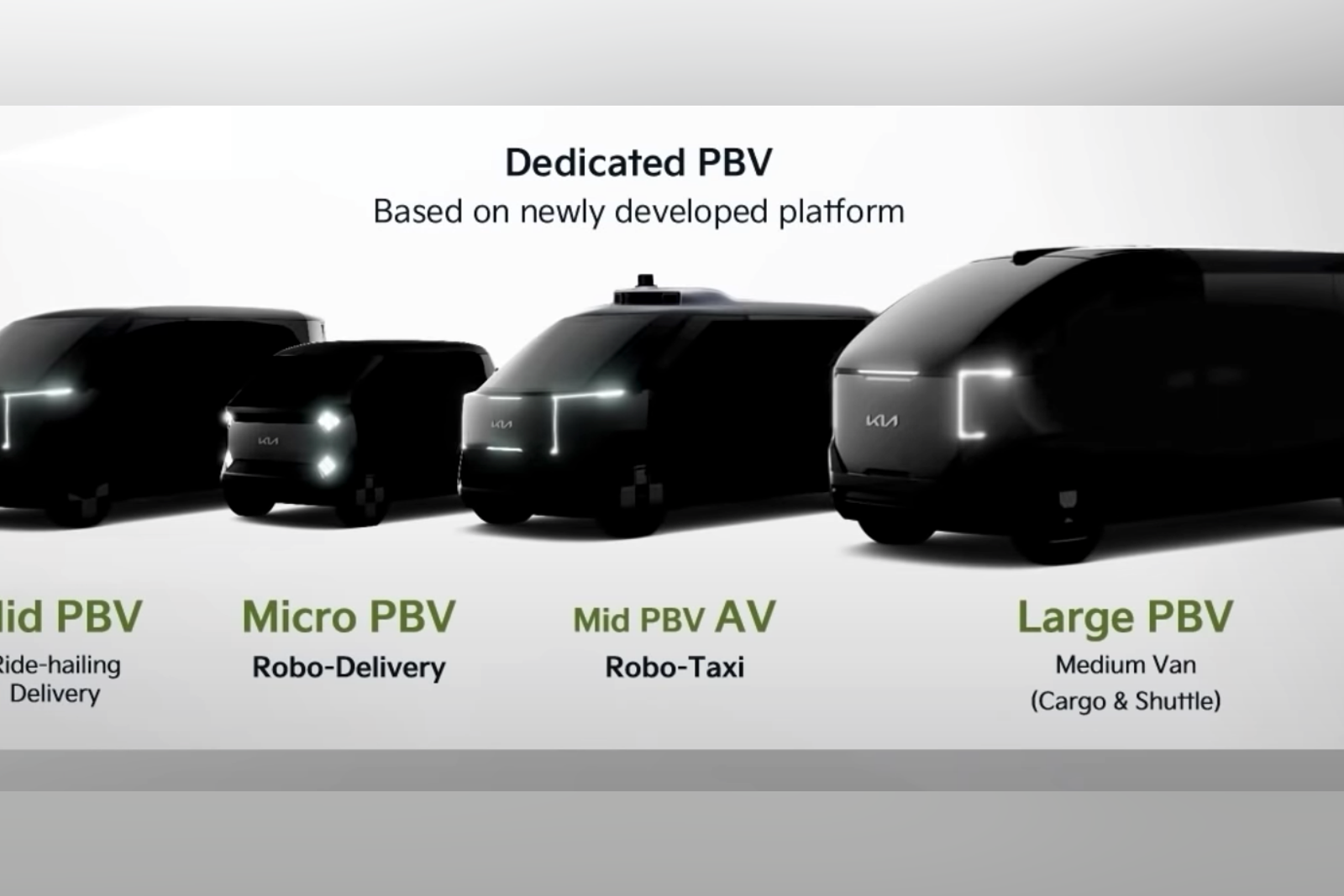Kia has teased its upcoming purpose-built vehicles (PBV) ahead of the opening of a dedicated factory in the second half of 2025.
The carmaker previously announced it is working on four dedicated vehicles that will use its new eS platform, a dedicated electric ‘skateboard’ platform. All have boxy bodies and short overhangs.
The first to launch will be a mid-sized model, codenamed SW, that’s due in 2025. It will be available to serve not only as a delivery vehicle, but also one for ride-hailing.
The small PBV looks close to a Picanto in size, while a larger PBV will be available for shuttle, mobile office and delivery applications.
Kia says its small and medium PBVs will offer autonomous driving technology.
It plans to produce 150,000 PBVs in the first full year of production, with the potential to increase volume should there be demand.
Kia has already released its first PBV, the Niro Plus, a version of the first-generation Niro which has been adapted for ride-hailing use with a raised roof.
The Hyundai Motor Group has plans to invest KRW 24 trillion (AU$27 billion) in its domestic electric vehicle industry by 2030.
The company is investing a total of one trillion won (AU$1.13 billion) into 99,000 acres of land near its current factories in Hwaseong, South Korea for a PBV production facility.
Kia has not opened a new factory in Korea in 25 years, which marks a milestone for the automaker.
The company says it is applying a ‘cellular method’ in its PBV factory.
The cell method works by grouping together machines or workstations that will be used to produce similar products or parts, reducing downtime and increasing productivity.
Kia also claims the factory will have 20 per cent less carbon emissions than its existing factories. One way it’ll cut down emissions is by using more natural light.
Hyundai Motor Group says it plans to become one of the world’s top three electric vehicle manufacturers by 2030.
It plans to achieve this through a rollout of 31 electric vehicles across its Hyundai, Kia and Genesis ranges by 2030.
It aims to significantly expand its annual EV production in Korea to 1.5 million units and its global volume to 3.64 million units by 2030.




